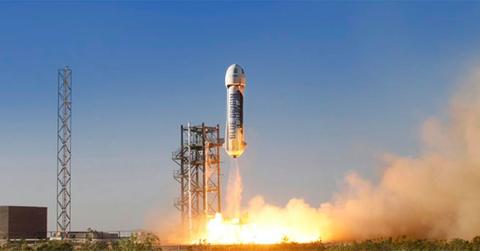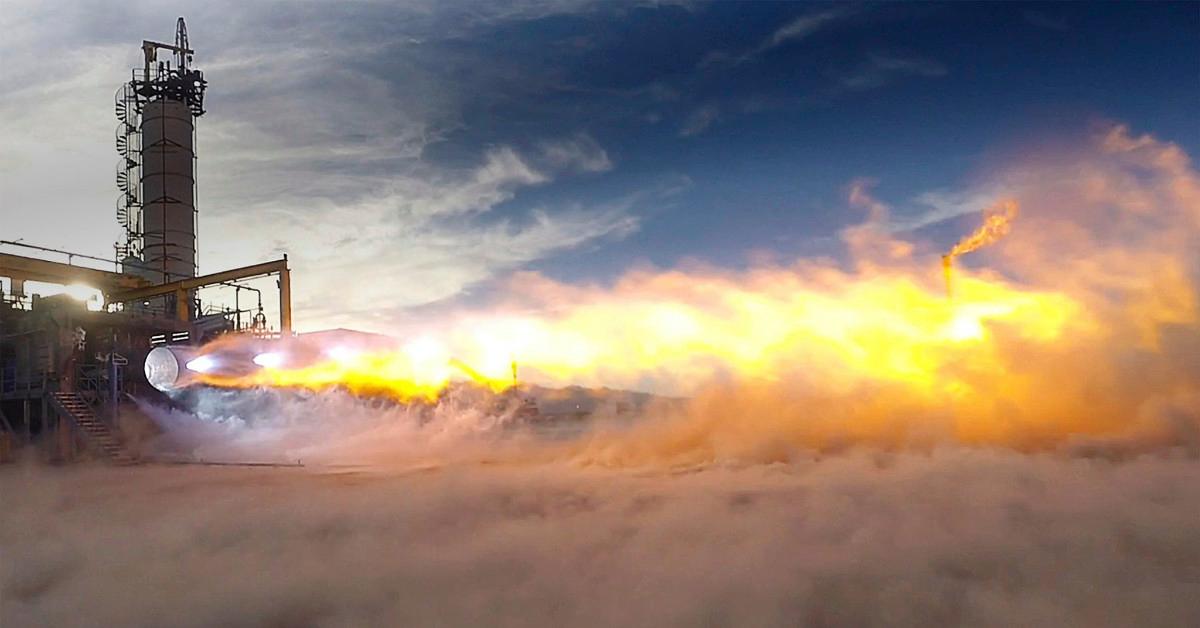Blue Origin Has Started “Making Hundreds of Millions” Annually, CEO Bob Smith Said
Does Blue Origin make money? With another crewed New Shepard mission successfully launched, learn more about the Jeff Bezos company’s revenue.
April 1 2022, Published 3:42 p.m. ET
Amazon founder Jeff Bezos retired from his post as Amazon CEO last year to focus on projects like Blue Origin, one of the most visible private spaceflight companies in business. Bezos has said that he spends more than $1 billion of his personal fortune on the aerospace venture, but does Blue Origin make money to recoup Bezos’ investment?
The shorter answer is, it’s starting to. Bezos founded Blue Origin in 2000, but the company has recently made giant leaps toward profitability with its cargo payloads and its space tourism flights, another of which launched on Thursday, March 31. In October 2020, Blue Origin CEO Bob Smith told The New York Times that the company had “gone from virtually zero revenue to now making hundreds of millions of dollars of revenue annually.”
Blue Origin is earning millions by selling tickets for space tourism flights.
After Bezos returned from his own spaceflight in July 2021, he told reporters that Blue Origin had sold nearly $100 million worth of tickets for future space tourism flights, adding that “the demand is very, very high,” per CNBC.
Blue Origin hasn’t publicized ticket prices, but one customer bought a ticket for the first crewed New Shepard flight for $28 million but had to postpone their reservation due to a scheduling conflict. $19 million of that windfall was divvied up among 19 space organizations, according to The New York Times.
In an interview with The Wall Street Journal in April 2019, YouTube’s “Everyday Astronaut” host Tim Dodd guessed that Blue Origin would ultimately charge $150,000 per New Shepard seat “so as to undercut Virgin Galactic,” which was charging $250,000 a ticket at the time.
Blue Origin successfully launched its fourth space tourism mission on Thursday, notching another win for the two-decade-old company.
“I think there’s a huge market in suborbital space tourism, so as long as New Shepard can execute with safe and regular flights, I think that business will be profitable,” Ars Technica senior space editor Eric Berger told Space.com in August 2021.
The company has also launched cargo into space for paying customers.
Blue Origin’s cargo business employs the reusable New Shepard rocket to provide “an effective, and profitable, platform for testing new technologies and performing scientific experiments,” as science writer Kenneth Chang wrote for the Times in October 2020.
Blue Origin CEO Bob Smith told the newspaper at the time that the company was making money “with every flight.” NASA, for instance, paid Blue Origin $1.5 million to carry two systems the agency was testing: one to measure the velocity of a descending spacecraft and another to use terrain images for lunar navigation, according to the Times.
But Smith added that storage lockers aboard the New Shepard rockets were the most popular option for paying customers. “That starts around $100,000 for about 25 pounds and something the size of, let’s say, a microwave,” he explained. “But we also have many payloads that we use with students that go as low as $8,000.”
That same month, Blue Origin payload sales director Erika Wager told Quartz that the company had flown over 100 payloads total and was “rapidly filling those manifests” for cargo payload missions over the next couple of years.


